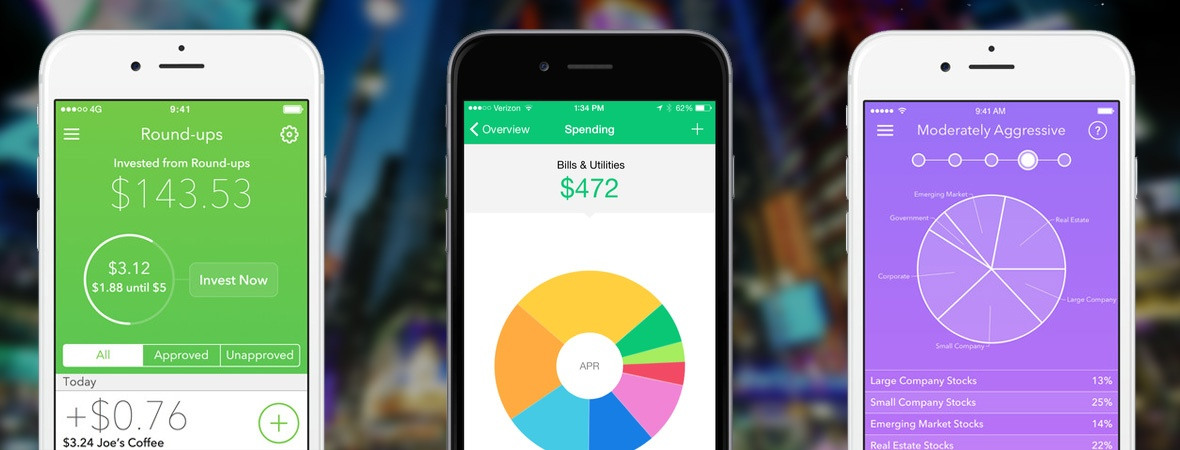
Mobile applications in the finance industry
On the things that are scary scale, the term finance is one that I’m sure many of us might liken to that of a dentist, a spider, or a clown. Add the term personal into the mix and you might send someone into a state of anaphylactic shock. Alas, as tax time fast approaches, the fearsome shadow it casts is one that we’ve all got to get ready to step into.
But there’s some good news. There’s no need to fear.
Although technology has made the world a far more complicated place than it was just twenty years ago, it also means that managing and keeping track of all your personal finances can be made easier—with apps.
Yep, rather ironically, it’s almost always technology that we turn to when we want to simplify our day-to-day lives. In the case of managing your personal finances, apps are a way to reclaim a little bit of sanity, time, and ensure you’re not just up to date with your financial situation, but on top of it.
From helping you manage your finances to investment apps that let you keep track of the markets while you’re on the go, here are 5 of the top-ranked and most popular free finance apps available – for your personal finances – on the market.
1.Mint
Available on: Android / iPhone
Cost: free to download and install / paid upgrades available
Mint is perhaps one of the most popular money apps on the market. With over 1 million downloads, and boasting an average rating of 4.5 on Google’s Play Store, Mint’s one of those apps that makes budgeting easy.
The concept is pretty straightforward. Mint offers users the ability to keep up-to-date track of all your finances, from your credit cards to your bank accounts, and all the way over to your student debts. By connecting to your accounts, it gives users the chance to see how they’re actual figures are fairing against their budgets via colour coordinated and easy-to-read graphs. If you want it to, you can set it so that it will notify you when you’re getting a little carried away with your spending. Almost like a personal trainer who’s always cheering you from the sidelines, but for your finances instead of your muscle gains.
2. Acorn
Available on: Android / iPhone
Cost: free to download and install
When I was a kid I remember coming home from school with the change left over from my lunch. When I’d get home, I’d empty my pockets and get out of my itchy school clothes. Then, I’d rush over to my piggy bank and eagerly slot in the loose change. Acorns is effectively the 21st century’s version of this; it’s a way of saving your pennies. But digitally.
Here’s an example of what Acorn does. You walk into the supermarket and, using your debit card, buy a pack of gum that costs $3.37. Acorn rounds that figure up to $4.00 and invests the difference (63c) into an ETF folio of your choosing. Simple, hey?
People have reported mindlessly investing between $30 and $180 per month exclusively from round ups. Not a bad way to save on your monthly phone bill!
3. Venmo
Available on: Android / iPhone
Cost: free to download and install / fees involved
Sending money to your friends and family isn’t always an easy or speedy process. Transferring cash via EFT can take up to a couple of days before the money is processed. Sending cheques is, well, sending cheques (who does that?) and not everyone likes using PayPal.
Through the Venmo app, users are able to link their bank accounts to their Venmo account and instantly send money to friends and family. Of course, though the app is free to download, there’s a small transactional cost involved of 3%. But if speediness is what you’re after, that 3% is a small price to pay.
4. Digit
Available on: iPhone
Cost: free to download and install
Digit’s managed to gain Google as an investor, so it’s safe to say that from it, we can expect good things. Digit’s concept is summarised quite nicely in their slogan: Save money, without thinking about it. (It’s similar to Acorns, but different.)
This is from their video – ‘When you link digit to your checking account, Digit studies your spending and income history to predict your cash flow, and then checks in daily for savings opportunities. Digit sets small amounts of money aside that you don’t really need for your day-to-day expenses, in a way that you won’t notice… that money now sits in your FDIC insured Digit account.’ You can access the money sitting in your Digit account by sending a text, and the money’s available the next business day.
If you’re bad at saving money but really want to start somewhere, Digit might be a good place to start.
5. Goodbudget
Available on: Android / iPhone
Cost: free to download and install
Goodbudget is probably the most basic app on this list; nevertheless, it’s one that might prove handy for many people. It works by allowing users to create ‘envelopes’ for each budgeting category, and then decide what that budget should be. Once everything is set up, users then punch in their numbers and can keep tabs on how their envelopes are travelling. It’s not a fancy app, but for the less organized, it might be a better budgeting alternative than Excel spreadsheets.
If you’ve used any of the apps mentioned in this list, tell us what you thought. And if you’ve got any other helpful finance apps, let us know in the comments section.
